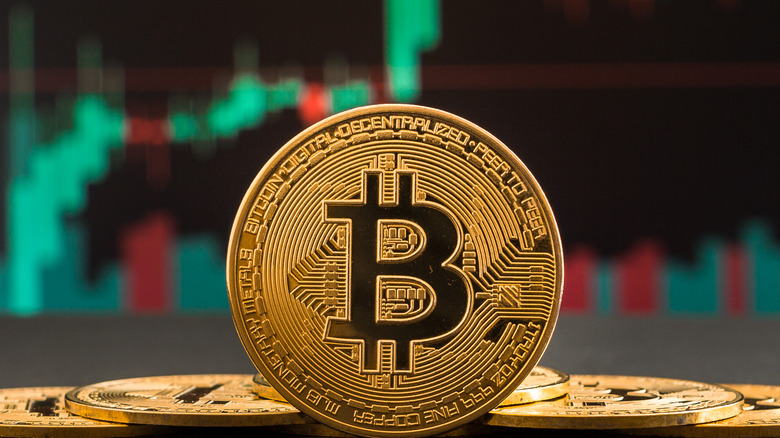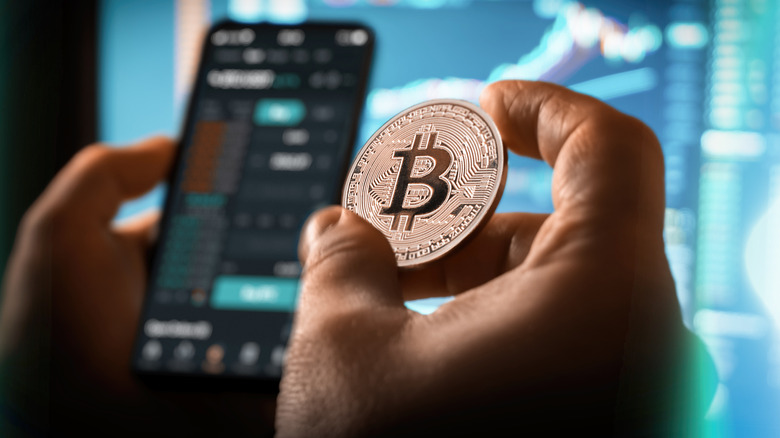Could America Really Ban Bitcoin?
In 2009, bitcoin made its debut as a digital peer-to-peer network that was untethered to any national government. Since then, it has become a widely accepted form of payment around the world with growing value. While a single bitcoin was worth less than 10 cents a decade ago, it peaked at over $60,000 in February and April 2021, per Statista. However, the cryptocurrency has suffered some setbacks after coming under scrutiny from numerous countries around the world.
In its biggest blow, China banned mining the digital currency, citing the carbon emissions emitted by miners as its reason, per Coindesk. According to Newsweek, other nations — such as India and several members of the European Union — have also considered regulations on bitcoin due to its connection to crime and money laundering.
As a result, many investors and monetary policymakers have questioned whether the United States might follow suit and either enact regulations or even ban the digital currency.
U.S. action against bitcoin is 'unlikely'
Fortunately for bitcoin enthusiasts, experts believe that it is "unlikely" that the United States will meddle with the digital currency, per Newsweek. There are multiple reasons for the U.S. to steer clear of the crypto world. For starters, Wall Street has already embraced bitcoin, and it is even traded on the Chicago Mercantile Exchange.
Moreover, government officials have a vested interest in keeping the U.S. dollar as the world's reserve currency. If bitcoin were to grow in popularity and could not be exchanged to the dollar, it is likely that another currency from a more "welcoming" country would become the most used currency in the world.
Last but not least, it would be difficult for the American government to crack down on bitcoin even if it wanted to. Lawmakers would have to raise taxes on transactions using the cryptocurrency — but that in turn would likely drive investment away and end in a net loss for the Internal Revenue Service.
"The government doesn't pose a threat to bitcoin," explained Carlos Betancourt, who runs a digital asset hedge fund. "It will be around whether the government likes it or not as long as we have the Internet."
"The global decentralized system simply cannot be stopped from encroaching the borders of any sovereign state," he added. "The ultimate winners will be those countries that embrace and find ways to work with it."

